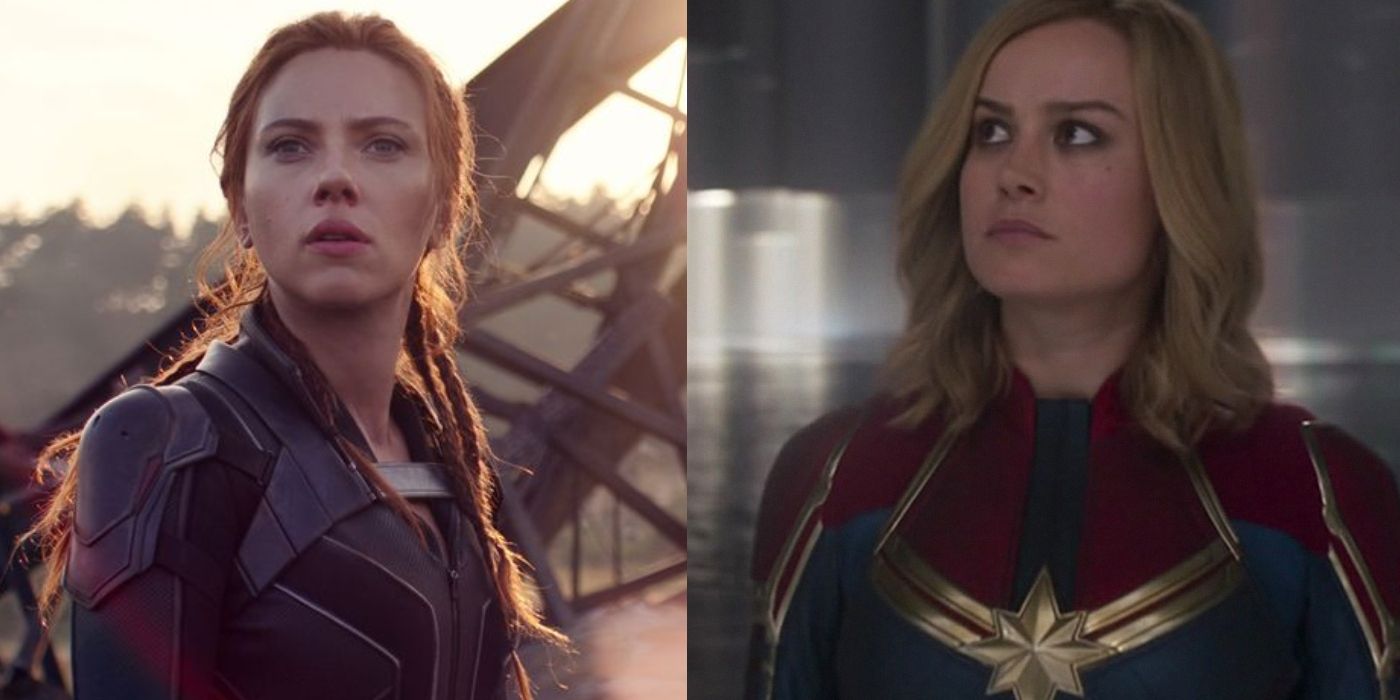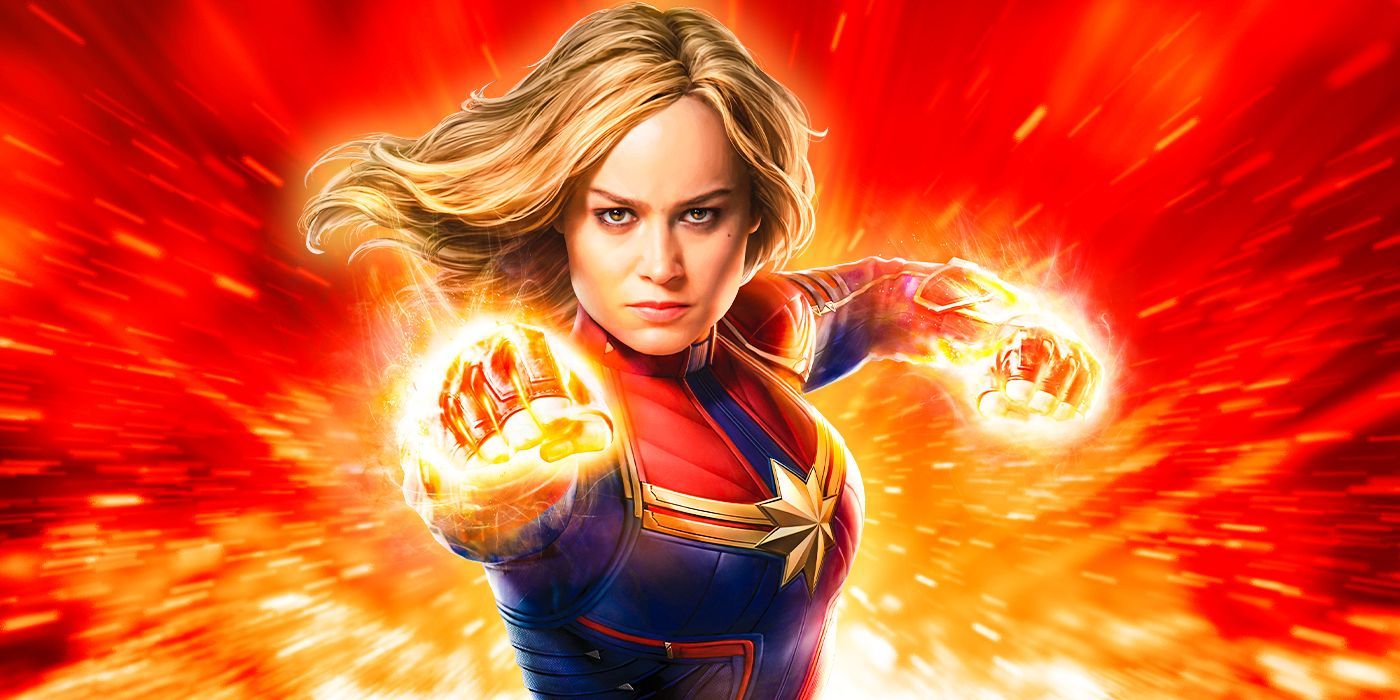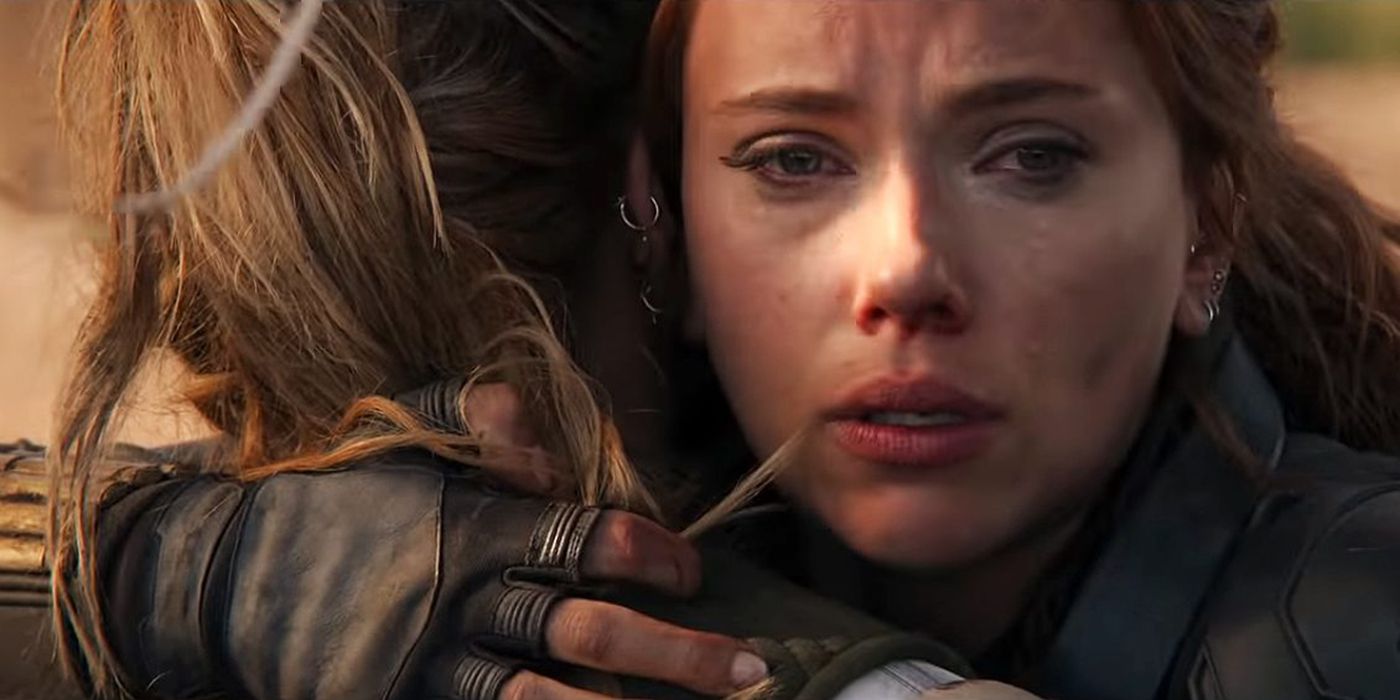After 21 installments in the franchise, the Marvel Cinematic Universe finally released its first female-led film, Captain Marvel. It starred Brie Larson in the title role and followed Carol Danvers in 1995 as she became the iconic comic character. While this was supposed to be a really big moment for the MCU in terms of female power and representation of women, it kind of fell flat.
Ultimately, people just didn't really like it. It came out at a weird time to flow with the series, and people didn't love the main character all that much. Longtime MCU fans were also a little bit salty that this character that hadn't been seen in the franchise at all was the first one to get this honor when Black Widow had been a part of the franchise from basically the beginning. A movie about Black Widow was rumored for a very long time and at this point was confirmed, but many felt that she deserved to be the first female with her own movie.
Two years later in 2021, and Black Widow is finally released. It's not the most glorious cinema release due to delays and movie theatre closures, but people are certainly talking about it. Though the reaction is still kind of mixed for various reasons, it's far better received than Captain Marvel. This is especially true when it comes to the specific lead characters themselves, and what makes them effective representation for women who weren't getting that from this franchise.
Black Widow was highly anticipated, but people were also skeptical. It's kind of both a prequel and a sequel, set between the events of Captain America: Civil War and Avengers: Infinity War. Because this is so long after the character was introduced to the series, and set after she's actually killed, people thought it might be a filler movie and hard to care about the characters. In a way, this was a big problem with Captain Marvel. Luckily, this was a problem that they mostly managed to avoid.
This may be because she was such an integral part of the franchise already, but Black Widow really gets its audience to invest in Natasha Romanoff/Black Widow. They also get the audience to really invest in her family, who is just introduced in this film. This is because her backstory isn't solely told in flashbacks and information dumps. The viewers can see her interact with her family and their personalities come through via the writing and the performances. This film feels much more important than Captain Marvel, in part because it's easier to care what happens.
The really big problem with Captain Marvel was the main character herself. This isn't to the fault of Brie Larson the actress, but the people who wrote her. She is shallow and bland, with practically no personality. She's very overpowered and seems unbeatable, which is fine but not really what audiences want to see of a character they've only seen once. While they clearly tried to give her some sort of epic feminist moment by giving her all the "girl power", it doesn't come off that way. Because she has no depth and no flaws and no personality, it instead comes off like a throwaway character that was meant to pander to women but only patronizes them.
Black Widow bypasses this by actually putting some care into the main character. Natasha Romanoff/Black Widow may not have been the greatest character throughout her entire time in the MCU. Her character has been accused of being over-sexualized and having too many flirtationships with her male counterparts. In her solo movie though, all of that disappears. She's not sexualized really at all, and all of the focus is on her character.
Natasha has flaws and she makes mistakes. She is far from perfect and her backstory is complicated. While Carol Danvers holds all of her strength in her powers and her more masculine attributes, Natasha holds her power in her life's story. It's a far more realistic and relatable take on the strong female character. She still kicks butt and saves the day, but it's in a more authentic way where the struggle actually seems real. In some ways knowing she dies was an asset to the film, because it makes the part of the film involving her family a lot more emotionally hard-hitting.
Much of the negative press surrounding Captain Marvel was rooted in misogyny. There were a lot of men who just felt like they couldn't relate to a female lead and she was far too powerful and they didn't like that. However, some of this criticism was also valid. They didn't really do what they thought they were going to. Black Widow was a good chance to remedy that, and many would say that they succeeded. It's not a perfect movie, but it does far more for girl power than Captain Marvel did.



